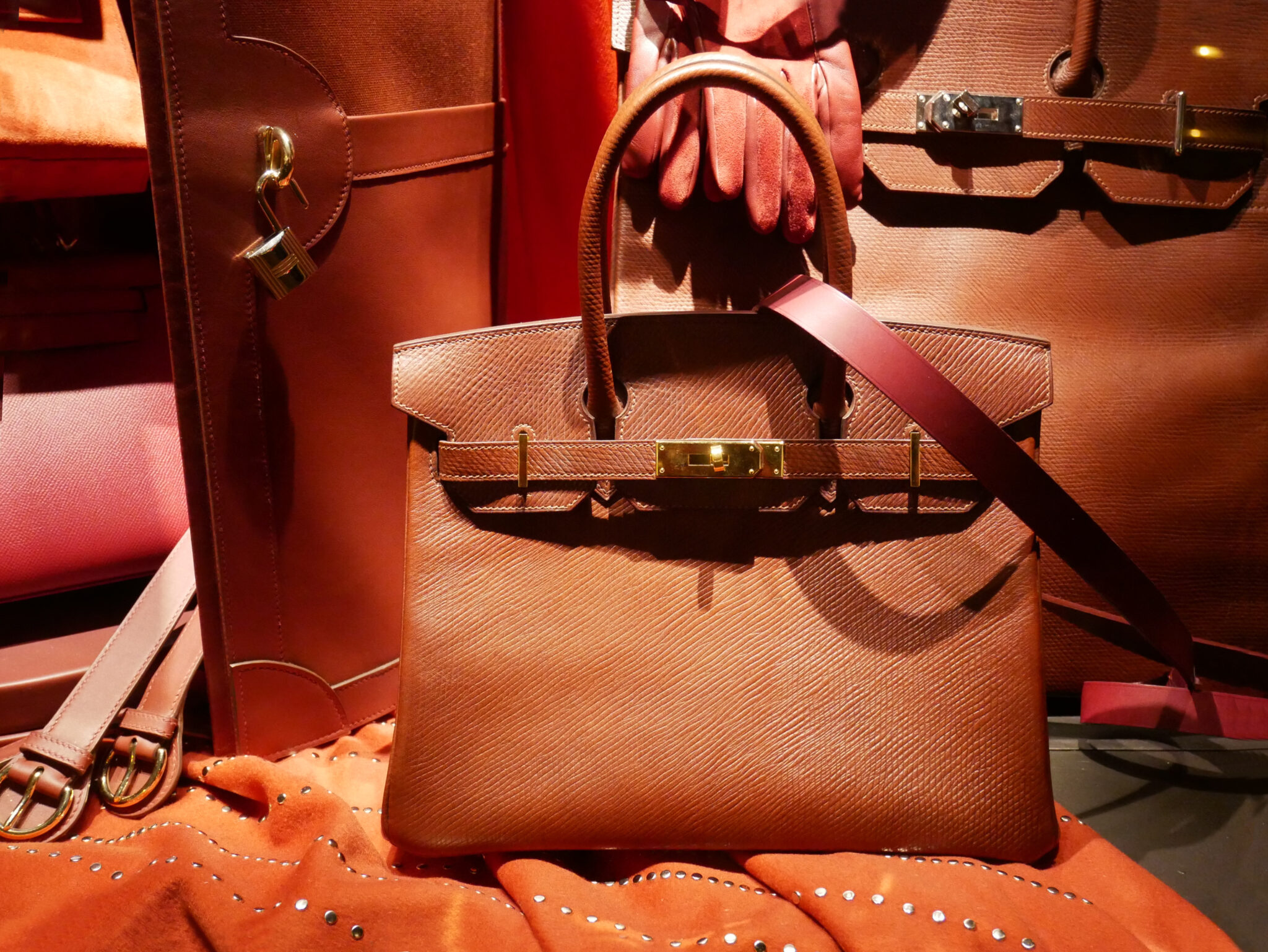Move over shady NYC alleys—Walmart has entered the chat, serving up knockoff dreams faster than a blue-vested employee can say “Rollback.”
Yes, the same retail wonderland where, in a single shopping trip, you can snag a family-sized bag of Oreos for questionable dinner choices, a bulk pack of socks destined to vanish into the void, a lawnmower that might moonlight as a leaf blower, and a vacuum so powerful it sucks up your will to do anything else for the rest of the weekend, is now allegedly offering its take on the iconic Hermès Birkin bag. Price tag? A cool $80. Somewhere in France, Hermès execs just spat out their Château Margaux, clutching their $25,000 arm candy in sheer disbelief.
For the blissfully unaware, the Birkin isn’t just a handbag; it’s a status symbol, a mythical beast of the fashion world. Getting one costs more than a full year of groceries for a family of four, putting little Johnny through a season of competitive hockey—complete with hotels, parent tailgating at tournaments, and Starbucks venti caramel ribbon crunch Frappuccinos with extra whip. Throw in the caffeine buzz, the occasional hangover, and at least hockey comes with a trophy at the end.
And now, Walmart is winking at us, saying, “Skip the years-long waitlist and $25k—here’s a bag that’s kind of like it for a fraction of the price of your weekend Costco haul.”
From a trademark agent’s perspective, this is like watching someone try to recreate the Mona Lisa with finger paints—clumsy, misguided, and an insult to the original. Hermès has meticulously curated its brand as the zenith of luxury, the champagne-soaked pinnacle of exclusivity. Walmart’s $80 doppelgänger is the equivalent of showing up to the Oscars in a tuxedo T-shirt and Crocs. Sure, you’re technically dressed, but no one’s mistaking you for George Clooney.
Trademark law exists to prevent exactly this kind of chaos. Hermès isn’t just selling leather and hardware; they’re selling a fantasy—one where private jets and beachfront villas are standard fare. The Walmart “Birkin-esque” bag? That’s a fast track to turning their couture crown jewel into a punchline. Imagine someone spotting your Birkin and saying, “Oh, Walmart special?” It’s enough to make Hermès consider changing their name to “Hysterics.”
Of course, Walmart isn’t calling it a “Birkin.” They’re smarter than that. Instead, they’re leaning on the legally ambiguous phrase “inspired by,” which is trademark-speak for, “We copied it, but you can’t sue us. Or can you?” Hermès has gone to battle with street vendors selling bootleg Birkins, so Walmart might as well start prepping for a very sternly worded legal memo.
And let’s be honest, Walmart’s play here is less about democratizing luxury and more about making a quick buck off Hermès’ legacy. This isn’t a noble quest to bring high fashion to the masses—it’s capitalism in a sequined dress, hoping no one notices the knockoff stitching. Hermès spends millions protecting their brand’s exclusivity because that’s the whole point. A Birkin isn’t special if everyone has one. If Walmart starts a trend, what’s next? Tiffany “inspired” rings at the jewelry counter? Louboutin-esque sneakers in the clearance bin? At this rate, even the phrase “luxury brand” might need a rebrand.
The slippery slope is real. Walmart’s $80 faux-Birkin might feel like a win for the bargain hunters, but it’s a gut punch to intellectual property. Hermès and other luxury brands aren’t gatekeeping—they’re safeguarding decades of craftsmanship, reputation, and prestige. When a brand’s identity is knocked off, the value of the original dwindles. And trust me, Hermès is not about to let their legacy be dragged into Walmart’s fluorescent lighting without a fight.
So, what’s the takeaway here? While it’s tempting to laugh at the absurdity of an $80 Birkin, the stakes are serious. It’s not just about handbags; it’s about preserving the integrity of brands, the line between inspiration and imitation, and the principle that some things are worth protecting. Because no matter how tempting it is to find “luxury” in the clearance aisle, some legends—like the Birkin—are better left untarnished.




